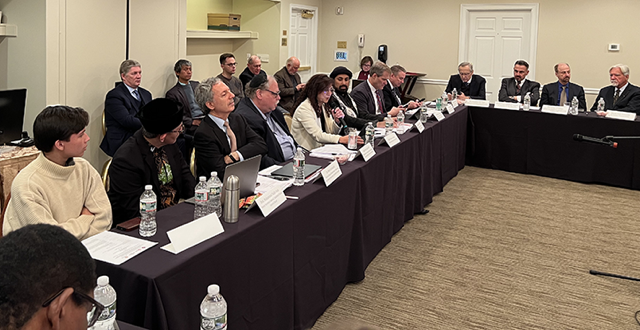Universal Declaration of Human Rights 75th Anniversary

Amid political turmoil abroad and widespread intellectual confusion at home, renewing appreciation of human rights and their proper place in democratic self-government and responsible foreign policy is for the United States a vital act of democratic self-government and responsible foreign policy….
In the face of these daunting headwinds – and almost exactly 75 years to the day after the United States joined 47 other nations at the United Nations to adopt the Universal Declaration of Human Rights (none voted against the UDHR, eight abstained, two did not vote) – a two-day conference held last week at Princeton University gathered approximately 40 religious leaders and scholars from around the world to reaffirm the power of human rights to unite peoples and nations. Representing Imam Talib Shareef of The Nation’s Mosque was Imam Albert Sabir.
Princeton’s James Madison Program in American Ideals and Institutions cohosted “The Future of the Universal Declaration of Human Rights” with Nahdlatul Ulama, headquartered in Indonesia and, with around 100,000,000 members, the world’s largest independent Muslim organization; the Center for Shared Civilizational Values, which works closely with NU; and the G20 Religion Forum (R20), for which the Center for Shared Civilizational Values serves as a permanent secretariat. The conference aimed to build a “global consensus” that the UDHR embodies assumptions, principles, and goals that, consistent with the consistent with the best in their own traditions, the world’s peoples and nations “should strive to fulfill”.
